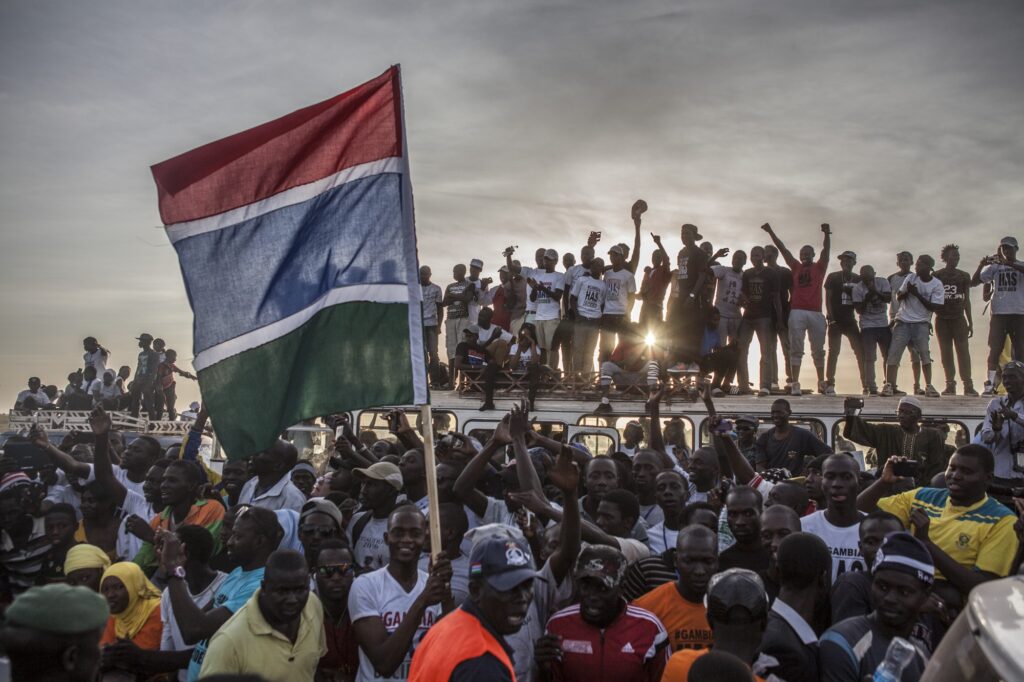
Part Two
Abortion of values and dreams is a routine normal about ‘the new normal’ in the Gambia simply because when foetus eaters are embedded in clinics as midwives, do not expect any safe-delivery of a baby or a still-birth. The trouble with the Gambia is easy to reach because there’s no evidence to show that we’ve learnt anything from the pitfalls of our past. The docile and largely uninformed masses have not helped matters either, acquiescing to the manipulative whims of the political class. Indeed, our road has been rough, very rough and disastrous.
When the Gambia was setting out on her democratic journey two years ago, little did she know that she was on the road to nowhere. If someone had predicted in 2016 that the democratic dispensation, after two years, would produce pains instead of gains and division instead of dividends, Gambians would’ve disagreed. Today, the country stands regrettably on the threshold of another kleptocratic administration, ruing two years of waste, unfulfilled promises and paradise lost. From the impunity, selfishness, greed and executive myopia with a centralized political culture very much like autocratic administration remains.
I am still amused (or amazed) that smart Gambians and friends of the Gambia around were shocked as to what’s gone wrong with Gambian democracy and her people. The Gambia with the longest tradition of uninterrupted substantive and procedural democracy from 1962-1994 in Anglophone West Africa, hosting the pride of a continent: Africa’s gifts to the world, the headquarters of the African Centre for Democracy and Human Rights Studies and home to the “Banjul Charter”, the African Commission on Human and People’s Rights ushering in twenty-two years of totalitarian rule and we’re now witnessing kleptocracy on an unprecedented scale in the Gambia after ending brutal despotism. What is the trouble with the Gambia or who bewitched the home of Kunta Kinte?
“Gambians are what they are because their leaders are not what they should be – competent and incorruptible leaders” (Chinua Achebe – paraphrased).
Nigerian great Chinua Achebe has a book – “The Trouble with Nigeria” – where he summarizes the primary cause of the West African country’s socio-economic and political problems: Failure of leadership. The failure of Nigeria’s leadership has made it near-impossible for a society infinitely more blessed with human resources than with natural resource to solve and/or mitigate problems such as hyper-tribalism; lack of patriotism; social injustice and the normalization of mediocrity; indiscipline; and wanton corruption on everyday interaction between citizens.
One chapter “False Image of Ourselves” is cut-n-dry. Achebe is unequivocal and categorical: “Nigeria is not a great country. It is one of the most disorderly nations in the world. It is one of the most corrupt, insensitive, inefficient places under the sun…. (that) as hopeless as she may seem today, Nigeria is not beyond redemption…. critical? Yes, but not entirely hopeless.” (p11-12).
I empathize with Mr. Achebe’s sentiments – specific to the Gambia. I particularly see, in Chapter 10 of “The Trouble with Nigeria”, some Gambians whose “patriotism”, at best, speaks to a lack of objectivity in their perspective on the fifty-four-year-old nation.
At worst, the “The Gambia: Love It or Leave It” ethos that Chinua alludes to in the chapter is an entitlement- and hubris-imbued ignorance that reminds me of what I have seen and heard from some in the “Fly-over/Red States” of America. Having said that, let me also concede that I have been (and continue to be) relentless in my excoriation of the Gambia and its character as a society. Germane to this post and to paraphrase Achebe, the trouble with the Gambia is not her leaders – god-chosen or otherwise.
The vexation with the Gambia is Gambians and the hundreds of thousands other everyday Gambians who suspend any trace amounts of reason and/or logic – every day or every five years – to buy into whatever their god-chosen and/or tribal chieftains are selling them – even when history has repeatedly shown that what is being sold is, at best, half-baked and at worst, absolutely and undeniably fake.
The resentment with Gambians is their acceptance and normalization of the culture of unaccountable and irresponsible leadership – day after day; year after year – going back to the dawn of independence – even when they (should) know better. What makes this acceptance and normalization even more insidious and damaging to the country is the fact that it is increasingly couched in Kennedy-esque “Ask not what the Gambia can do for you. Ask what you can do for the Gambia” language!
The altruism and patriotism embodied in this Gambian version of JFK’s most famous and popular quote is seen/heard almost every time a discussion – in person and/or on social media – among Gambians broaches the topics of corruption and incompetence of the country’s public officers – especially the ones in power at the time of the discussion i.e. the status quo. The inevitable comeback from the mostly-supporters and/or beneficiaries of the status quo is a variant of the question “What are you doing to (fill in the scourge de jour)?”
This question sounds reasonable until you start to catalogue, in order, (i) who usually asks said question/s and (ii) their relationship/s – familial or otherwise – with those whose probity is being called into question.
More importantly, the question sounds noble until you realize that the very people questioning your contributions towards the “Gambia We Want” have had and continue to have access to the very people whose rectitude on corruption and on competence is suspect at best! Some of the people effectively holding brief for those currently in power by deflecting responsibility away from them with the “Ask not what The Gambia can do for you” line have wined and dined and broken bread with these very Gambian leaders – national and county!
Wining, dining and breaking bread with leaders – at the national or local level – is not a bad thing at all. Access to power and to the decision-makers is the first step in impacting how said power is used and the quality (or lack thereof) of the decisions made when said power is wielded. Given an opportunity to wine, dine and break bread with a decision-maker, I will use said opportunity to champion a cause near-and-dear to me. Given the opportunity to engage someone with access to key stakeholders on matters such as corruption and incompetence and lack of accountability, I have no problem bringing up said topics – in public and in private – especially in the safe space that being outside the Gambia provides – compared to being in the Gambia and taking to task such people!
Until we ask hard questions and insist on direct answers and punish culprits, there will always be a pitch-black night in every morning of our country’s aspirations. So, please, let us look forward to good governance and watch everything- especially the timely delivery of civil and political liberties.
That’s the trouble with the Gambia: Gambians who complain that their leaders are a corrupt and unaccountable lot but don’t tell them so when given the opportunity to do so – in private while breaking bread – or at the ballot box – with their vote.
To borrow a warning from Justice William O Douglas: “As nightfall does not come at once, neither does oppression. In both instances, there is a twilight when everything remains seemingly unchanged. And it is in such twilight that we all must be most aware of change in the air- however slight-lest we become unwitting victims of the darkness.”
The Gambia has taught me to expect things collective to go wrong all the time. Why our leaders lose their way, why our leaders suffer from executive leadership and myopia and, even, tolerate mega sleaze in successive regimes in the current and past nothing happened. The cost of myopic management and leadership will happen again and again, and no one will be sorry for the Gambia. So, please, do not rupture vital tendons and kill yourself with high blood pressure if Gambians will tolerate a reluctant leader with myopic leadership if not aborted soon. Just know that nothing will successfully hold voluntarily unless the people’s power is sure of positive returns from the activism by Gambians.
For the sake of Gambian democracy, it would be gravely disappointing were civil society groups and pro-democracy activists to abandon the field, allowing President Adama Barrow’s government myopic management and leadership to sink deeper roots.
By Alagi Yorro Jallow











Recent Comments